Cannatheology: Cultural and philosophical roots
Cantheism, or Cannatheism, is a sacramental practice that is tolerant and consistent with other churches, faiths, and systems of belief. Anyone may incorporate Cantheism into their current religious persuasion, so long as they adhere to the Creed, practice mandatory consumption of sacramental cannabis, and follow one or more of the optional practices.
Cantheism / Cannatheism is an ancient religious practice
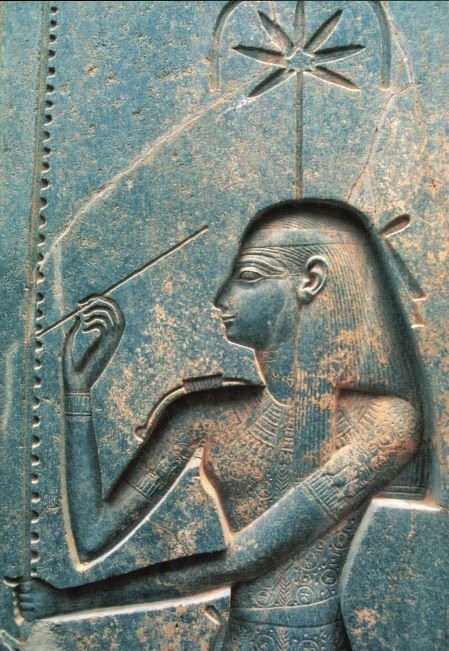
Many of the world’s great religions have used Cannabis sacramentally and ceremonially, including but not limited to:
Imperial Egypt: Smoke Eaters populated the Temple at Thebes, where the great library was located. Temples were filled with intoxicating incense, and herbal concoctions were used in mortality rituals.

refers to cannabis
hemp, used as a
modern symbol
for Cantheism and
sacramental
cannabis use.
Animism is the belief that all things have sentient spirits, and some versions assert that Cannabis has the power to cross the line between the mental and the spiritual worlds. Popular in Africa and pre-Columbian America. See the parable of the rope between heaven and earth that was accidentally cut, below.
Biblical Judeo-Christian-Moslem religions, including Coptic Christians and Rastafari ganja, the sacred spliff (more below). Among cited Biblical references are repeated references to God on High. Also, Genesis 1:29-31 God’s gift to man; Exodus 30: 22-30 Holy anointing oil;
Ezekiel 34:29 And I will raise up for them a plant of renown, and they shall be no more consumed with hunger in the land, neither bear the shame of the heathen any more;
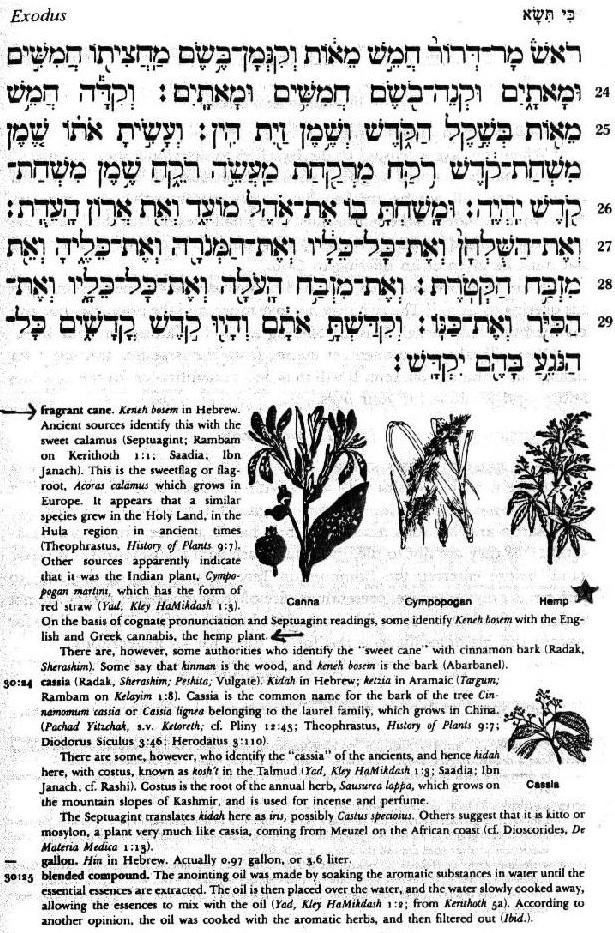
Isaiah 18:4-5 For so the Lord said unto me, I will take my rest, and I will consider in my dwelling place like a clear heat upon herbs, and like a cloud of dew in the heat of harvest. For afore the harvest, when the bud is perfect, and the sour grape is ripening in the flower, he shall both cut off the sprigs with pruning hooks, and take away and cut down the branches.;
Rev. 22:1-2 And he showed me a pure river of water of life, clear as crystal, proceeding out of the throne of God and of the Lamb. In the midst of the street of it, and on either side of the river, was there the tree of life, which bare twelve manner of fruits, and yielded her fruit every month: and the leaves of the tree were for the healing of the nations.
Buddhism: A passage in the Vinaya (Buddhist monastic code) discusses Cannabis. It says that the Buddha allowed “hemp water” for treatment of rheumatism. The key word here is “bhaṅgodaka”. See here and here for more info. The Buddha was recorded as saying, “I allow, monks, sweating by the use of all kinds of herbs,” and “I allow, monks (the use of) hemp-water,” among other things.
Sufi Moslems may use cannabis to reach an ecstatic state, often involving dance, as so the Whirling Dervishes.

Scythian, Thracian cultures: Smoking huts, hemp labor, cannabis purification rituals. Mourning and purification rituals described by Greek historian Herodotus, 4th C. BC. Built a ceremonial cleansing hut. Used a brass bowl on a tripod, filled the bowl with burning coals and added cannabis branches to the top. The room filled with smoke and they bathed in the fumes until they emerged cleansed and “howling with laughter.”
Hinduism: Especially the Sadhu, celebrate ganja, with a chillum (chimney pipe) used for smoking or consumed in a milk beverage bhang when not smoked. It is common to use a hemp smoking cloth to clean the end of the chillum, filter ash from the smoke and inhale the chillum through for sanitation purposes.
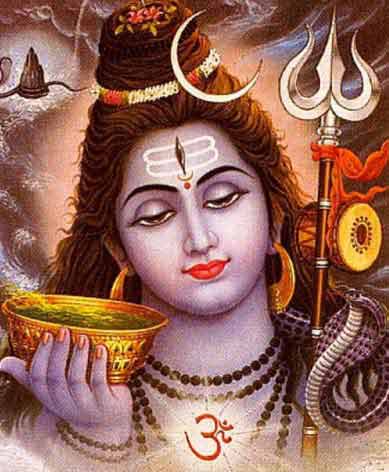
Cannabis is used by Hindi people for sacrament and for Ayurvedic spiritual and physical healing. They bring a mystical interpretation of Cannabis healing powers via spiritual and medical practices. Salute: Bom Shiva bom bom. Goddess Ganja Ma.
And, of course, Rastafarians draw their religious use of cannabis back to ancient Ethiopia and India. Jamaica was a jumping off point for slaves being stolen from Africa and indentured servants being taken as hostages to the Americas to pay off a debt. Marcus Garvey founded the Rasta religion on the island with a combination of Ethiopian and Hindu beliefs. He incorporated Hebrew and Christian beliefs into the religion and allowed for sacramental use of cannabis under its Hindu name of Ganja.
Rastafaria is the only cannabis religion recognized by US courts. Ben Guerrero, who lived in Guam, fought a successful case for his sacramental use of cannabis. “The continued prosecution of Defendant GUERRERO for importing marijuana violates the U.S. Constitution, the Guam Organic Act, the Treaty of Peace between the United States and Spain and RFRA.” Unfortunately, almost all other state and federal case law around cannabis and religion has been based on Rastafarians for selling cannabis — not for using it as a shared sacrament. On the one hand, this is good because few Rastas have been charged for their personal religious use and cultivation. Unfortunately, however, as a result, the rulings have largely been unfavorable due to “bad facts.”
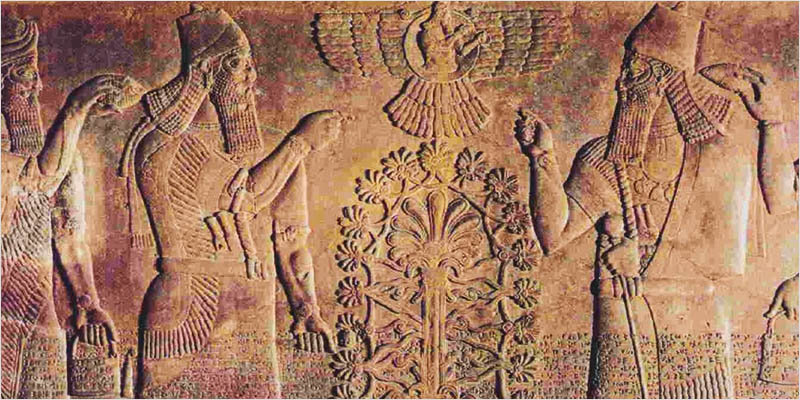
Zoroastrianism: Use of cannabis to communicate with god on high for mystical consciousness and personal enlightenment. Tree of life.
Pygmy and other African religions: Mound smokers, smoke eaters, animism, shamans who invoke the spirit of plants and nature; cannabis smoking relates to the breath of the gods. African creation myths explain why God, who once lived close to humankind, has removed himself from their world. Most of these myths describe a golden age when there was no separation between humans and their creator.
However, something occurred to alienate God from humanity. The Mende, for example, say that God withdrew into the heavens because humans continually begged benefits from him. Ashanti mythology tells of God’s retreat into the heavens after a woman hit him with her pestle while pounding traditional food.
Myths from the upper White Nile area speak of the relationship between God and man being severed when a rope between heaven and earth was accidentally cut (Mbiti, John S. 1969. African Religions and Philosophy. London: Heinemann, p 97; Mitchell, Robert Cameron. 1977. African Primal Religions. Niles, IL: Argus Communications. p 25).
Shamanism: Typically includes the use of many different herbs in mystical pursuit of the infinite.
Cannabis has been found in many ancient and historic sites
Follow this link to hear Cannabis Theologian Chris Bennet discuss the ancient origins of Cantheism with Swami Chaitanya on Seshin’ with Swami.
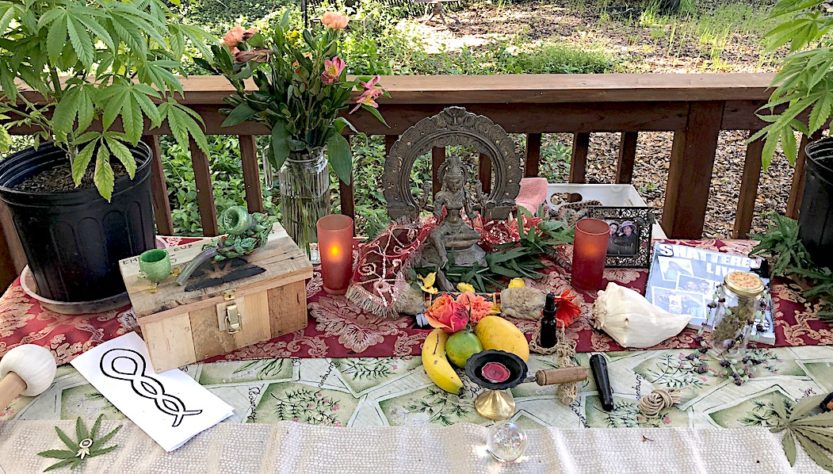
Hi, i think that i noticed you visited my site so i return the want?I am attempting to to find things to improve my web site!I guess its adequate to use a few of your ideas!!
Hi my friend! I wish to say that this article is amazing,
nice written and include approximately all vital infos. I
would like to see more posts like this .